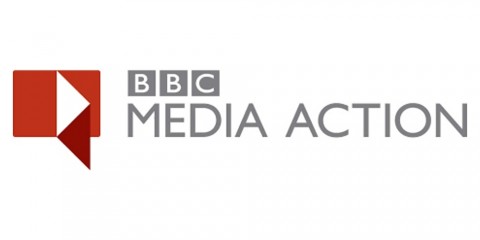Communications technical support to the Ministry of Urban Development in implementation of urban sanitation communications strategy
2016 - 2018 • BBC Media Action
Purpose
Enabling and empowering a lasting System level change through design, implementation, and evaluation of impactful social and behaviour change communication (SBCC) on sanitation.
Activities
While supply issues create obstacles for under-served communities to access safe and sustainable sanitation, there are also many challenges in converting open defecation habits, including the lack of information and understanding of the value of safe sanitation. There is an increased sector wide recognition to work along the entire sanitation value chain to build, use, maintain and treat (BUMT) toilets, in order to create a sustainable change. With this challenge in mind, the BBC Media Action WASH Program provides strategic communication support to the Government of India in implementation of their sanitation communication strategy, focusing on behaviour change, reducing open defecation and improving the management of faecal sludge.
The BBC Media Action strategic approach is on the basis that change occurs at four levels;
• Systems: the political, social and economic institutions and relationships within society that influence how change happens and provide the context for our work. This includes the media, communications and regulatory environment.
• Organisations: commercial, community and public service media organisations, as well as state institutions, civil society organisations and other not-for-profit organisations.
• Practitioners: fellow media professionals, frontline health workers, teachers, etc.
• People: all those who need and inform our work including our audiences and beneficiaries.
Countries of activity
Location of main activity
Objectives
Goal(s):
The aim of the project is to provide through Social and Behaviour Change Communication strategy and design an effective and sustainable roadmap to meet the Swachh Bharat Mission to be Open Defecation Free (ODF) by October 2019. The aim is also to synthesize and document learnings from this project for sharing knowledge with sanitation and communication practitioners.
Objectives:
In 2014, the Government of India gave a new direction to its efforts by launching the Swachh Bharat Mission (SBM – the Clean India Mission) which sets an ambitious target for India to be free from open defecation by October 2019. But, the urban sanitation behaviours cannot be changed in isolation, without addressing deeply embedded social norms around the need for safe sanitation prevalent across urban communities. Therefore, in order to have a uni-focal strategy to address social norms across India, the objective is to provide additional communications support to the Ministry of Housing and Urban Affairs and its partners working on urban sanitation.
The secondary objective, therefore, is to contribute to sustained reduction in open defecation at the population-level, by developing strategic communications outputs on consistent toilet use and by providing advisory support to MoHUA.
Further information
Research or implementation partners:
BBC Media Action works in collaboration with the Bill and Melinda Gates Foundation, Ministry of Urban Development (MoUD), the existing Project Management Unit (PMU) at MoUD, McCann Erickson (the creative agency developing mass media content for MoUD) and MSL (MoUD’s social media agency), to introduce a scientific, structured and strategic approach to developing and implementing urban sanitation communications.
The program is supported by the collective experience of national and international WASH and communication experts in the BBC Media Action teams in New Delhi and London.
Filter tags
Behaviour change Bill & Melinda Gates Foundation Capacity development Cities East Asia & Pacific Enabling environment and institutional strengthening International NGO Journalists Political processes and institutional aspects Politicians and local decision makers Practitioners Public awareness, advocacy and civil society engagement Specific to one or several countries Urban (entire city)
Attached files
Links

Uploaded by:
Elisabeth von Muench (Elisabeth)















